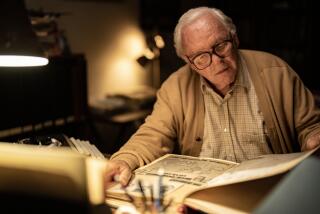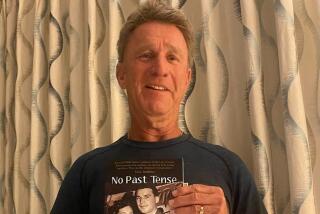Book Tells of 49 World War II Heroes : Rescue: Citizens of 10 countries risked their lives to help Jews. Most say they did nothing special.
- Share via
WASHINGTON — Jan Karski does not think he was any kind of a hero. All he did, while others stood by doing nothing, was to help rescue Jews during the Holocaust.
The 78-year-old Georgetown University political scientist was a courier for the Polish underground during World War II. He is one of 49 people from 10 countries who are the subjects of a new book, “Rescuers.”
Most, like Karski, are Christians. Some are atheists or Jews. Virtually all of them maintain that they did nothing remarkable, the authors of the book say.
Yet most, if not all, risked their lives.
“I never volunteered to help the Jews,” Karski said in an interview. “I didn’t know the Jewish problems.”
He did help when asked, however. He carried “terrible messages” from members of Poland’s Jewish underground to the Polish government in exile in London, who, he says, relayed them to Allied officials.
“The Jewish masses do not realize that this is the end,” he says one message read. “We know.”
Other messages said they needed gold and hard currency to bribe the Gestapo in Poland or to feed hungry families. They needed blank passports to help them escape the ghetto.
At the request of Jewish leaders, he went to the Warsaw ghetto and the Belzec death camp to see for himself.
“I couldn’t believe it,” he said. “I saw horrible, horrible things I will never forget. So I agreed to do what they asked of me.”
Why did he and others agree when so many just stood by?
“It seems like there is something they were born with that made them able to tolerate the tremendous risks they were being put under every day,” said Gay Block, a photographer who is co-author of the book with Malka Drucker.
“They had an ability and a desire and a need to stay in touch with people around them, whether next door or in the next country or in the whole world.”
The people came from backgrounds rich and poor, intellectual and uneducated, compassionate, religious families and homes full of injustice and intolerance.
Irene Opdyke, who, as a teen-ager in Poland, helped to warn Jews in the ghetto of impending raids, said: “I was raised in a household where there was sensitivity to pain and to other people in trouble.”
Opdyke, who now lives in Yorba Linda, Calif., said in a telephone interview that at age 18, she had a job serving meals to German officers in Ternapol, Poland. She heard the local Gestapo chief telling of a planned raid on the ghetto.
She passed the word to a group of Jews she had befriended, who worked in the Gestapo laundry room. They passed it on to friends in the ghetto.
“We were able to save many lives,” she said.
Drucker, who has written children’s books, said her rabbi approached her five years ago with the idea for the book.
“There were Christians who risked their lives to save Jews during the Holocaust,” the rabbi said. “Children need to know that.”
She spoke to Block, who said she would like to photograph the people if they were still alive, but did not think it would be a book for children.
“I said, ‘Let’s make a book for grown-ups,’ ” Drucker recalled.
The 255-page collection of interviews, narrative and photographs is being published this month by Holmes & Meier Publishers Inc. of New York and London.
In interviews, she said, the rescuers told her repeatedly they had done nothing special.
“I couldn’t understand what they were saying to me,” she said. “Clearly, in my eyes, they were heroic. I think what they meant is that they were ordinary people, in the sense that this is what a human being is supposed to do.”
The difference is that they did it.
More to Read
Sign up for Essential California
The most important California stories and recommendations in your inbox every morning.
You may occasionally receive promotional content from the Los Angeles Times.













